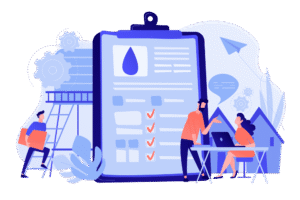We human beings have a unique gift of storing memories and most of us like to relive those memories. The ideal scenario is to relive happy memories and disconnect from the unhappy memories. But, many of us do the exact opposite. We re-experience unpleasant memories and distance ourselves from pleasant memories or sometimes do not see any value in them – sounds familiar, isn’t it?
This blog is about memories or incidents and one of my favorite techniques in NLP ( Neuro Linguistic Programming)–Association and Disassociation.
Technically, Association is a process of reliving a memory, we see, we hear and we feel the experience as if it is happening now, whereas Dissociation is a process of stepping out of our body, so that we become observers and watch the memory and observe ourselves (it also important for us to understand that dissociation does not mean that we don’t care or we have to forget).
To put it in simple terms, Association means to connect closely and dissociation means literally to create some distance, to gain perspective, to see situations and ourselves in a perspective. If we consider that our memories are a rich source of content embedded in our unconscious mind then, association/dissociation is about how we view that content.
As a coach, I have come across 3 categories of people; highly emotional– associated with almost all their memories (either they are too happy or are too sad), neutral-mostly dissociated with all their memories and some people who have no appreciation for nicer things in their lives- dissociated with pleasant memories and associated with unpleasant memories.
How to Associate and Dissociate?
How does one associate with pleasant memories and dissociate with unpleasant memories? Here are some ways that I have found useful:
- Associate – One can associate by asking questions such as:
- How do I want to feel?
- What memory do I want to recollect to a particular feeling, e.g. energetic?
- When was the last time I felt energetic? And what did I see, feel and hear when I felt energetic? What was I wearing? What was the fragrance?
- Having tapped into our ‘energetic memory, it is time to relive the experience by seeing what we saw, hearing what we heard and feeling how we felt as if it was happening here and now. As we revisit the memory, we start reliving the same ‘energetic emotion’
- Dissociate – If we realize that we are caught up in a loop of an unpleasant memory (e.g. A conflict with your colleague at the office), then one of the ways to dissociate is by asking ourselves these questions:
- What is the story I am telling myself? And what is my role in that story?
- What if I was watching the conflict like a movie?
- What is this really about?
- How will this incident appear from another point of view?
Benefits
Why is so important for us to associate and dissociate? Well, here are some benefits
| Associate | Dissociate |
| Enable us to appreciate life by recollecting pleasant memories | Ability to resolve conflicts by looking at the situation from another point of view. |
| Access positive experiences to move forward (whenever we feel stuck) | Enables us to be non-judgmental about ourselves and others, thus improving our relationships with others. |
| Feel empowered and confident by accessing our resources | Enables fair decision-making process |
The story of a perennially unhappy man and a Zen master is an apt story about Association and Dissociation. Here it is:
A young man was very unhappy with his life. He was ever complaining and felt depressed. Once he heard about a Zen Master who was visiting his town.
The young man met the Zen Master and said “Life has been unfair. I have been a failure and I have many problems and that makes me sad, I feel low and depressed, tell me Master, how can I be happy?”
The Master heard him carefully and after sometime asked one of his disciples to get a glass of water and a bowl of salt. He asked the young man to take a handful of salt from the bowl, put it in the glass of water and drink it. The young man did as he was told.
The Master asked “How does it taste?”, “terrible,” said the young man.
Then, the Master asked him to put the salt in the nearby lake and asked him again to drink the water from the lake. The young man followed the instructions.
Now the Master asked “How does it taste?”, “it tastes good”, said the young man
“Were you able to taste the salt in this water?”, asked the Master. “No,” said the young man.
The Master explained, “The problems of your life are like salt; the taste will differ based on the size of the container/ amount of water – the intensity of your problem will be based on how you perceive them”.
Putting it all together
It is important to note that to associate or disassociate with a memory or an incident is within our control. It is one of the powerful tools of NLP that helps in getting a perspective.
Thanks for taking the time to read this post. I hope you found it useful. The fact you have read this article means that you would like to read about NLP and Coaching. For more on Coaching and NLP, do read my previous articles.






